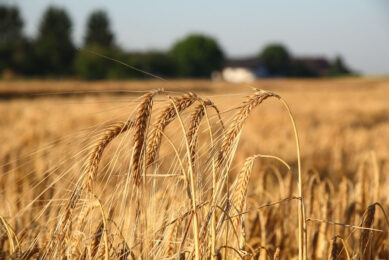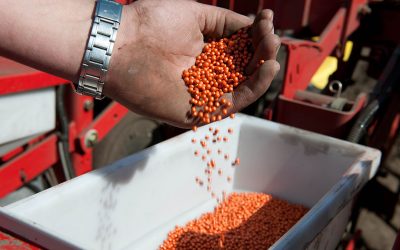Retarded Europe
An article in one of the main opinion magazines in the Netherlands caught my eye recently with the header “Retarded Europe”. It dealt with the aversion Europe has for GM-crops and how environmental groups hamper the fight against hunger in Africa. What has that to do with animal feed?
An article in one of the main opinion magazines in the Netherlands caught my eye with the header "Retarded Europe". It dealt with the aversion Europe has for GM-crops and how environmental groups hamper the fight against hunger in Africa. What has that to do with animal feed?
Well, if there is enough food for people than there is less competition for raw materials for animal feed. Furthermore the organisation of European biotech companies, EuropaBio, at the Biovision congress in Lyon, France recently concluded that Europe has created an unbridgeable gap regarding GM-crops.
On a world-wide scale the production of GM-crops is doubling annually (especially in China), with the exception of Europe. Here the clock has stopped, mainly due to environmental groups warning us for Frankenstein food.
For almost ten years now no new GM-crop has been approved in the EU. It is not only Greenpeace and friends that hamper new introductions, there is also red tape and unwilling governments that ensure the EU becomes an underdeveloped continent.
Africa also falls short
There is another continent where the introduction of GM-crops is slow and that is Africa. This continent would be ideal for modified crops, since yields are only a quarter of what they could be.
According to a professor at the university of Venda in Nigeria GM-crops are perfect for poor countries and poor farmers.
This is in contrast to the "green revolution" of the seventies where fertilisers and pesticides increased yields dramatically, but were unaffordable for the poor farmers in Africa. It required too much capital investment.
GM-seeds, however, are relatively cheap and still ensure higher yields, because they are more insect resistant and thus need less pesticide. Farmers in Africa see that they can harvest larger crops and earn a better income without using these hazardous pesticides.
The objections of the European greenies against the use of GM-crops are also reaching Africa. Many scientists had their education in the country of their former colonizer and were infected with the arguments of the European environmental movement and thus block development in their home country accordingly.
Another illustrative fact is that European supermarkets refuse meat from South African farms if it has been fed with GM-corn.
In contrast: European cows are fed US corn of which everybody knows it is genetically altered.
The article in the magazine ended with the conclusion that Europe usually talks big about solidarity and ethics, but in practice counteracts the fight against hunger in and the development of Africa. I call that retarded.











